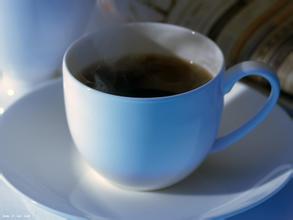Introduction to the growing environment of Yunnan coffee and the proportion of seed brewing methods
Yunnan Arabica Coffee Introduction
Yunnan Fine Coffee Bean
Coffee cultivation in China is concentrated in Yunnan Province and Hainan Province. Yunnan has a relatively large output, with an annual output of about 26,000 tons in recent years, accounting for 90% of the national output. Yunnan coffee is said to have been handed down by the French 70 or 80 years ago. The main production varieties are Arabica Arabica, the so-called small coffee species, commonly known as Yunnan small coffee in China. Yunnan's high-quality geographical climate conditions provide good conditions for coffee growth. The planting areas are Lincang, Baoshan, Simao, Xishuangbanna, Dehong and other prefectures. Yunnan natural conditions and Colombia are very similar, namely low latitude, high altitude, temperature difference between day and night, produced by cup quality analysis, coffee belongs to alcohol flavor, its quality taste similar to Colombia coffee.
However, due to various reasons, Yunnan coffee industry development speed is not fast, Yunnan coffee is mainly exported in the form of raw materials, exports in 2006 about 15,000 tons. More than 60% of the raw materials are purchased by Nestle and Max every year, and Starbucks and Amway have also joined the ranks of acquisitions in recent years.
Due to the lack of deep processing and marketing, Yunnan coffee has a low reputation and is locked in the mountains. It is believed that with the in-depth development of Yunnan coffee industry, the rising demand of domestic coffee market and the efforts of governments and enterprises, Yunnan coffee will usher in a new development period. Pu 'er, Xishuangbanna, Wenshan, Baoshan, Dehong and Lincang in the south and west of Yunnan are the distribution areas of Yunnan small coffee cultivation. As of January 1, 2012, according to the comprehensive survey of Yunnan Province, the coffee planting area in Yunnan has exceeded 800,000 mu, and it is expected that the coffee bean output will exceed 55,000 tons in this period. For the future, the blueprints of state governments in Yunnan have also been drawn: Dehong plans to expand the coffee planting area from the current 100,000 mu to 200,000 mu in the next few years; Lincang will expand the existing 20,000 mu coffee forest by 10 times to 200,000 mu in the "Twelfth Five-Year Plan"; Pu 'er also plans to expand the coffee forest from 220,000 mu to 600,000 mu. Other suitable coffee planting areas such as Baoshan and Xishuangbanna are also planning to expand the planting scale.
Dehong: It has the reputation of "the hometown of Chinese coffee". As of 2011, a total of 120,900 mu of coffee planting area has been developed in the whole prefecture, accounting for 30% of the coffee planting area in China. In the next three years, the coffee planting area in Dehong Prefecture will reach 200,000 mu. The coffee planting altitude in Dehong Prefecture is above 1000 meters, of which 30,000 mu is planted on the mountain area above 1600 meters above sea level. In addition, the coffee planted in Dehong Prefecture mainly uses organic fertilizer and organic pesticide, so the coffee produced is of high quality and is one of the rare high-quality coffee producing places in the world.
Baoshan: Baoshan coffee planting began in the mid-1950s, the first coffee seedlings were introduced from Southeast Asia by the late patriotic overseas Chinese Mr. Liang Jinshan. The local famous Lujiangba Arabica coffee is of excellent quality. As early as the late 1950s, it was rated first class in London, England. In recent years, with the expansion of international trade, Lujiangba Arabica coffee is more famous. Europe and America, Arab countries, especially Britain, the United States, Egypt, Hong Kong and Macao merchants are regarded as coffee top-grade, products in short supply. In December 2010, after examination by the General Administration of Quality Supervision, Inspection and Quarantine of China, it was decided to implement the national geographical indication product protection for Baoshan Arabica Coffee. The west and south of Yunnan Province are located between 15° N and Tropic of Cancer. Most of the areas are between 1000 and 2000 meters above sea level. The terrain is mainly mountainous and sloping, with large fluctuations, fertile soil, abundant sunshine, abundant rainfall and large temperature difference between day and night. These unique natural conditions form the particularity of Yunnan Arabica coffee taste-strong but not bitter, fragrant but not strong, slightly fruity. As early as the 1950s, Yunnan Arabica coffee was very popular in the international coffee market and was rated as the top coffee.
The history of coffee cultivation in Yunnan dates back to 1892. A French missionary brought coffee seeds into Yunnan from abroad and planted them successfully in a valley in Binchuan County, Yunnan Province. More than 30 coffee plants bred from this batch of coffee seeds are still blooming in Binchuan County

Important Notice :
前街咖啡 FrontStreet Coffee has moved to new addredd:
FrontStreet Coffee Address: 315,Donghua East Road,GuangZhou
Tel:020 38364473
- Prev

Research says wild coffee beans will become extinct in the future if global warming continues
[global Science and Technology Comprehensive report] according to a report by Singapore's Lianhe Zaobao on September 4, the Australian Climate Research Institute pointed out in a newly released research report that if global warming continues on the current trajectory, wild coffee beans could become extinct by 2080. According to reports, researchers say that due to rising temperatures and rampant pests and fungi, it is estimated that the number of farmland suitable for growing coffee trees worldwide will decrease by 2050.
- Next

This traditional Chinese medicine shop, which looks like a coffee shop, completely subverts our imagination.
Speaking of traditional Chinese medicine clinics, you may think of doctors in white coats, gray hair and presbyopia glasses, rows of cabinets with various herbs, and the smell of medicines that pervade the whole space. In our impression, the traditional Chinese medicine clinic has always been regarded as a place full of antique and Chinese style, which seems to have nothing to do with modern style. However, the recently renovated Taipei
Related
- What is Sicilian coffee? Is it good to make lemon coffee with cold extract and hand hanging ears?
- Analysis of common problems in hand-brewed coffee extraction: Why does hand-brewed coffee separate from powder and water
- Workers collapse! Lucky suspects that it will introduce freshly cut fruits?!
- 1-point subsidy recipients wear thousand-yuan watches?! Local response: For low-income households
- Can lightly roasted coffee beans be used to extract espresso? How finely should you grind high-quality coffee beans to make Italian latte?
- What is the difference between the world's top rose summer coffee and Yejia Shefi? What are the flavor characteristics of Yega Shefi coffee and Panama rose summer?
- The ceremony is full! Starbucks starts to cut the ribbon at a complimentary coffee station?!
- A whole Michelin meal?! Lucky launches the new "Small Butter Apple Crispy Latte"
- Three tips for adjusting espresso on rainy days! Quickly find the right water temperature, powder, and grinding ratio for espresso!
- How much hot water does it take to brew hanging ear coffee? How does it taste best? Can hot water from the water dispenser be used to make ear drip coffee?

